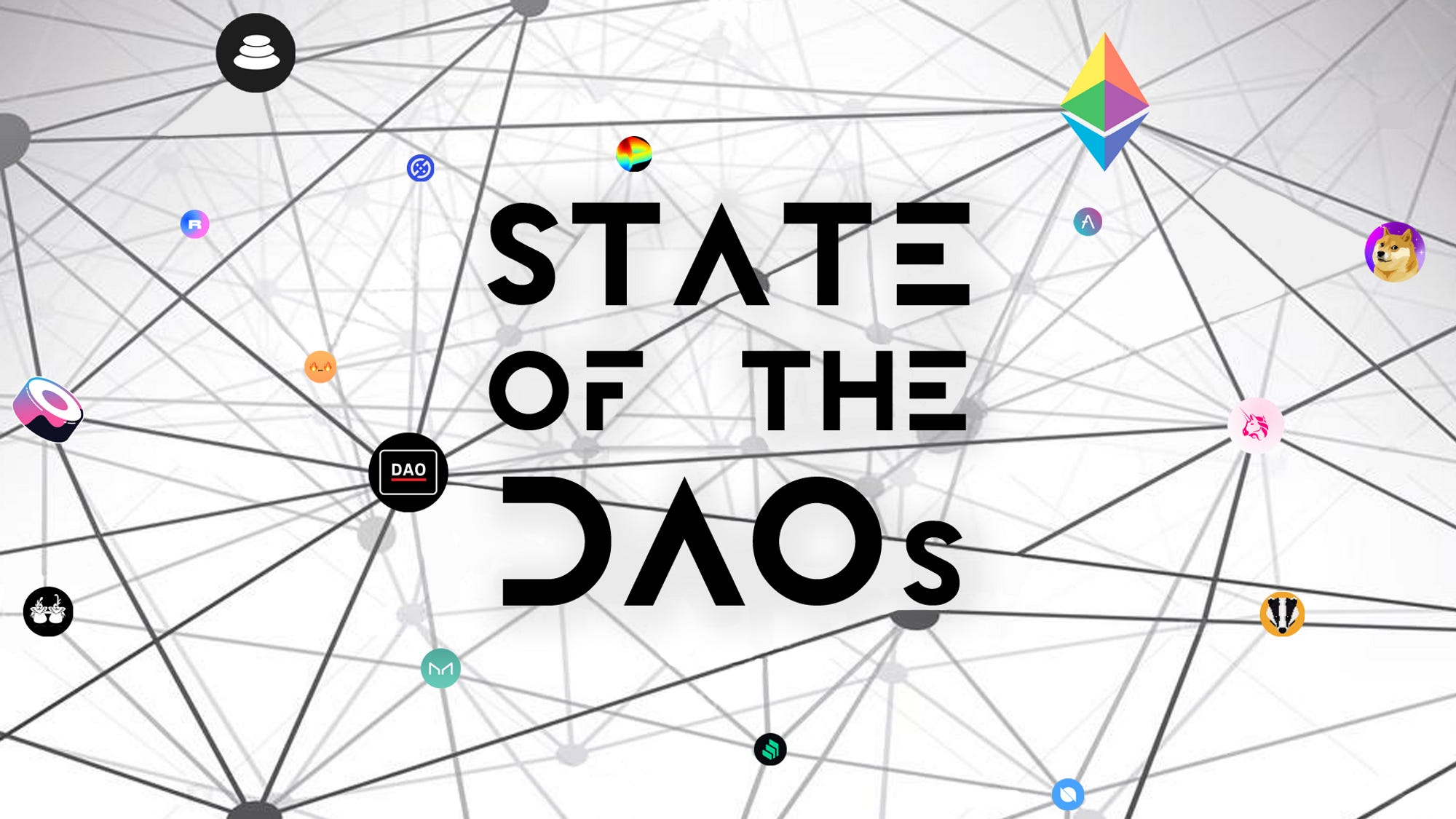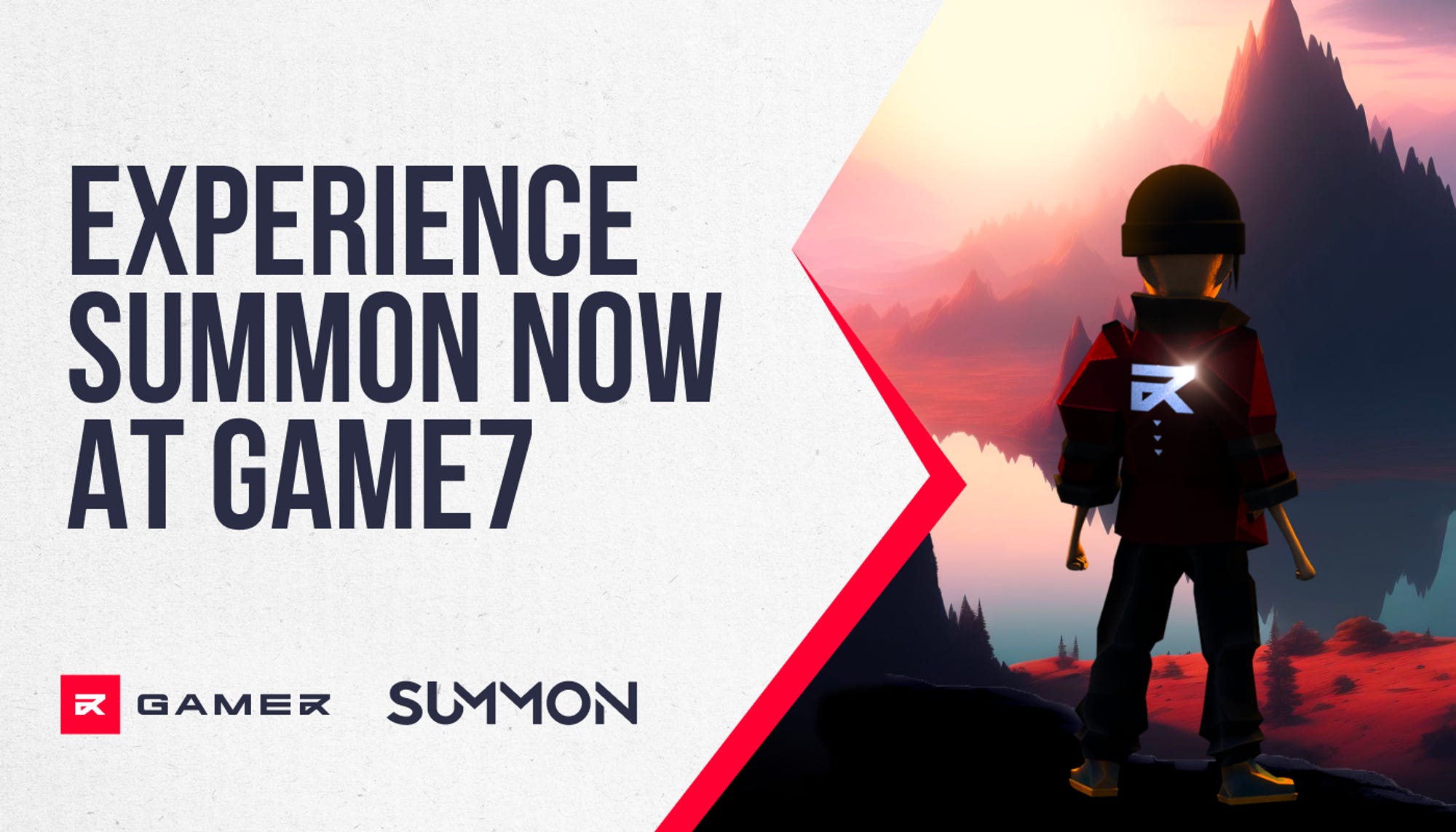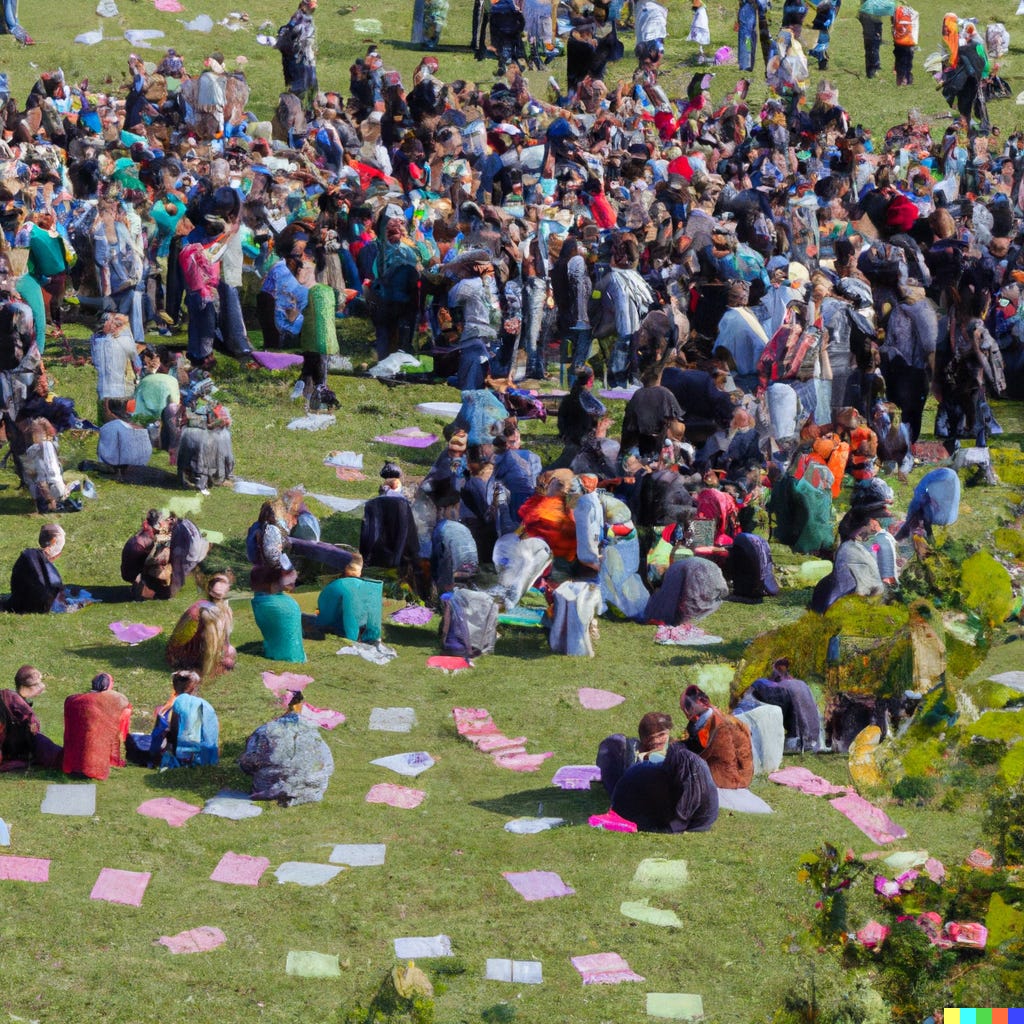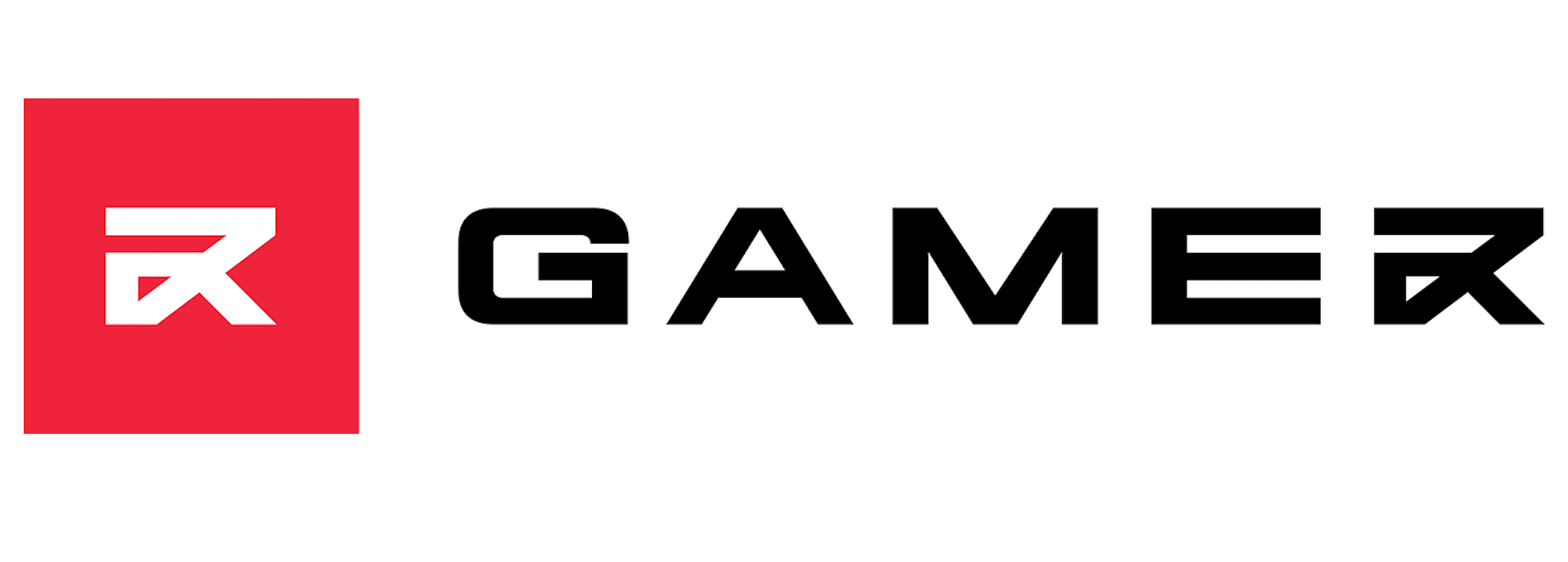Measuring Decision Making in Virtual Communities | State of the DAOs
Measuring Decision Making in Virtual Communities | State of the DAOsYou're reading State of the DAOs, the high-signal low-noise newsletter for understanding DAOs.Many of us have heard some version of “decision making drives results”. While the premise of this phrase is simple — how an organization makes decisions affects its performance — measuring the ways in which communities make decisions is notoriously difficult. In traditional organizations, decisions-making processes tend to be centralized. Contrast this, of course, to decentralized communities where the regular mantra is that decision making is more inclusive and hierarchies are flatter. And while this may be true in a relative sense, it’s equally accurate to say that DAOs are ripe with centers of soft power. Understanding decision making in decentralized organizations requires that we measure the relative influence of community members. To do this, researchers at RNDAO have created the Spread of Influence score to measure soft power. As Katerina writes this week, “[t]he Spread of Influence score gives the community a sense of key influencers, whether the larger member base is disconnected, and in general how discussions are undertaken within the community.” In assessing the results, “[w]hat one should look for is an optimal score, which promotes participative discussion but does not hinder the speed of decision making or overburden members with participating in conversations.” Armed with this information, community leaders can assess the health of a community and take steps to improve decision making processes and help ensure the longevity of an organization. This week’s DAO Spotlight focuses on Opolis, and organization dedicated to helping DAO contributors thrive, and we conclude, as always, with a TL;DR on some of the most recent DAO ecosystem takes and thought pieces, making it easy for you to cut through the noise and learn everything you need to know about the current state of the DAOs. Contributors: Katerina, Chameleon, angelspeaks, Quilia, KingIBK, Vi-Fi, boluwatife, Kornekt, HiroKennelly, siddhearta This is the official newsletter of BanklessDAO. To unsubscribe, edit your settings. 🙏Thanks to our SponsorGame7 DAOGame7 is excited to launch Summon, our novel DAO governance platform. Summon is a community LiveOps tool that takes governance to the next level by making it easy for DAOs to measure the contributions of their members, and reward them in ways that go beyond money. How it works: Each community member mints a Soulbound NFT that evolves as the member contributes to the community, making the NFT upgradeable and unique. As each contributor completes quests and tasks, they earn experience points (XP), which help them move up in rank and unlock features and rewards in real time. By tracking, measuring, and rewarding contributions, Summon provides decision-making capabilities to those who invest time and effort into the community, as opposed to only those who contribute capital. The result is a meritocratic governance model that distributes power and governing rights to the most productive members of the community. 👉 Sign up to the Game7 waitlist to experience Summon 👉 Follow Summon on Twitter Measuring Decision Making in Virtual CommunitiesAuthor: Katerina A community’s progress can be impacted by its decision making process - measuring that process gives Community Managers valuable insights.Web3 is spearheading the formation of large communities spread across the world, coordinating towards a shared objective. Many of these communities uphold a permissionless or low barrier-to-entry principle and a drive towards decentralization. This impacts decision making by removing central choke points and creating a level playing field for all. It’s all about the community and what the members want. However, while formal power is largely removed, not everyone is in a position to influence a decision or sway a vote. Informal power — the ability to influence others via conversations — has a strong hold in web3 communities. Knowing how much influence is spread across the community gives community managers insights into how level the playing field really is. How Decentralized Are Web3 Communities?Communities that meet and coordinate on Discord normally default to open channels. Yes, some channels are “role-gated”, but that’s more to reduce the noise and help members focus on the conversations that matter to them than to exclude members. In other words, everyone can follow and read up on almost every conversation that is going on. Consequently, it makes sense to abandon the old saying “information is power” in web3. More than ever before, everyone has access to the same information on a subject matter. But, even if all conversations are technically accessible to all members, it does not mean that everyone has the same opportunity to participate in all conversations. Just think about language issues and time zones; while I sleep, I’m not able to participate in any conversation, and hence, I cannot influence the outcome of such conversations. Of course, I can chime in once I’m up, but that might be too late. More importantly, conversations on Discord are transient. Everything is searchable but with every new post it becomes harder and harder to find out who said what, to review the different arguments members brought to a discussion, and trace the path from “let’s talk” to “let’s do this.” Some members will always have more social status than others and their opinion may sway others, making them pivotal in shaping a proposal and deciding its outcome. While who-knows-who is less important in web3 with communities defaulting to open communication, informal power still matters. Informal power refers to a person’s ability to influence the thinking and decisions of others. These are the coaches, coordinators, mentors, and leaders of communities. You may not recognize them in a web3 community by their title but by their position in the community’s social network. Using Social Decentralization to Understand Informal Power DistributionIn TogetherCrew’s community health tool, we measure how conversations are either spread across the community (decentralized) or led by a small group of members (centralized). The thought behind this is that participation in conversations matters for shaping the future of the community and of the members participating in the conversation. That’s why we labeled the metric: Spread of Influence. Our underlying philosophy is that the communication structure of a community can impact how connected members feel with it and also how it evolves. The Spread of Influence score gives the community a sense of key influencers, whether the larger member base is disconnected, and in general how discussions are undertaken within the community. And of course, we are mindful that mere participation in conversations does not have to be beneficial for the community or necessarily positive. Just imagine the classical web2 legacy company example of a loud manager dominating the team meeting with their monologue about what should be done. What the Spread of Influence Score Can Tell YouThe Spread of Influence score should be interpreted in the context of the size of a community. What one should look for is an optimal score, which promotes participative discussion but does not hinder the speed of decision making or overburden members with participating in conversations. In a community with a high Spread of Influence score, there are no decision making choke points or weak links. There might be some members who are relatively more active than others, but, more or less, interaction is spread equally. However, if the members have divergent views, the decision making can take time. Also, if there is an external shock (e.g., new regulation or changes in the market), it is likely that the community might struggle to react and adapt because there is no central informal leadership. And additionally, for outsiders, the community might look disorganized as it isn’t clear who is in charge. If the Spread of Influence score is too high, harming your community’s progress, here are some actions you can take:
On the other end of the spectrum, if a community has a low Spread of Influence score, there is a group of members who are driving the conversations with limited input from others. Other members might read what is being posted but do not share their knowledge or opinion on the discussed topics. Consequently, the discussions and decisions do not leverage the collective knowledge and perspectives of the community, and there is a possibility that contributors feel undervalued or unheard and will reduce their involvement with the community over time. They may also feel that the community is evolving into something they cannot relate to. Eventually, the community’s future will depend on the central members' activity and goals. If the score is too low, here are some actions you can take:
If you want to know your community’s Spread of Influence score and find ways to improve resilience and member satisfaction, our community health analytics tool, TogetherCrew, is your best ally. Deploy TogetherCrew for your community! Or contact their team to learn more. 🙏 Sponsor: Game7 DAO is launching Summon, the new, gamified, meritocratic governance tool for DAOs. Ecosystem Takes
DAOs Could Get Official Standing Under Proposed California LawAuthor: Jason Nelson 🔑 Insights: This article discusses a bill that has been introduced in California that aims to establish a legal framework for DAOs. The Assembly Bill 1229, introduced by Assembly Member Matt Haney, has gained support from prominent crypto investment firm Andreessen Horowitz and the Crypto Council for Innovation.
Web 3.0: Decentralized GovernmentsAuthor: Dmitry Mishunin 🔑 Insights: The article examines the concept of decentralized governments in the context of web3. It explains how decentralized platforms have paved the way for the exploration of decentralized governments, highlighting examples from big IT corporations. It discusses the advantages and disadvantages of decentralized governance, emphasizing transparency, equal participation, and resilience as benefits while acknowledging challenges such as complexity, scaling, and regulatory issues.
Grants 101: Standing up a Grants Program in Web3Author: Annika Lewis 🔑 Insights: Through your engagement with web3 you most likely would have come across grants programs such as those run by GitCoin or Optimism. If web3 projects offer any signal of what’s to come, it’s clear that grants are likely to be an important component of the future of work.
DAO Spotlight: OpolisOpolis is a DAO that empowers independent workers to design their personal work arrangements and have access to benefits that are usually reserved for corporate employees. Opolis aims to create a more egalitarian and flexible global employment framework, where workers can choose who they work with, where they work from, and how much they earn. Opolis is built on Ethereum and uses smart contracts to automate employment processes and transactions. Opolis members can create their own employment entities (EEs) and join existing ones based on their preferences and needs. EEs are self-governing and can set their own rules and policies. Opolis also offers a marketplace where EEs can find and collaborate with other EEs or clients. Opolis has its own governance token, WORK, which is used to participate in the DAO's decision-making and reward distribution. WORK holders can vote on proposals, suggest improvements, and earn dividends from the platform's revenue. Opolis also has a utility token, OPOL, used to pay for services and fees on the platform. Opolis is more than just a platform; it is a community of independent workers who share a common vision of creating a better future of work. Opolis believes that work should be an expression of one's unique creativity and values, not a source of stress and exploitation. By joining Opolis, independent workers can enjoy more freedom, flexibility, and security in their work life. Want to know more about this project? Check it out on: 👉 Website 🙏 Thanks to our Sponsor
|
Older messages
Get Smart Transactions With BanklessWallet | BanklessDAO Weekly Rollup
Tuesday, June 20, 2023
Catch Up With What Happened This Week in BanklessDAO
Bitcoin Learns Some New Tricks: Emerging Effects of Taproot
Tuesday, June 20, 2023
Defying Ossification; The UX Risks of Gasless Transactions
Looking Beyond the Noise | Bankless Publishing Recap
Monday, June 12, 2023
Top-shelf Educational Web3 Content Shipped Directly to Your Inbox
Guess What? It’s For Governance | BanklessDAO Weekly Rollup
Monday, June 12, 2023
Catch Up With What Happened This Week in BanklessDAO
Bankless Card Charges Forward | BanklessDAO Weekly Rollup
Saturday, June 3, 2023
Catch Up With What Happened This Week in BanklessDAO
You Might Also Like
Central African Republic’s CAR memecoin raises scrutiny
Friday, February 14, 2025
Allegations of deepfake videos and opaque token distribution cast doubts on CAR's ambitious memecoin project. ͏ ͏ ͏ ͏ ͏ ͏ ͏ ͏ ͏ ͏ ͏ ͏ ͏ ͏ ͏ ͏ ͏ ͏ ͏ ͏ ͏ ͏ ͏ ͏ ͏ ͏ ͏ ͏ ͏ ͏ ͏ ͏ ͏ ͏ ͏ ͏ ͏ ͏ ͏ ͏ ͏ ͏ ͏ ͏
January CEX Data Report: Significant Declines in Trading Volume Across Major CEXs, Spot Down 25%, Derivatives Down…
Friday, February 14, 2025
According to data collected by the WuBlockchain team, spot trading volume on major central exchanges in January 2025 decreased by 25% compared to December 2024. ͏ ͏ ͏ ͏ ͏ ͏ ͏ ͏ ͏ ͏ ͏ ͏ ͏ ͏ ͏ ͏ ͏ ͏ ͏ ͏
Previewing Coinbase Q4 2024 Earnings
Friday, February 14, 2025
Estimating Coinbase's Transaction and Subscriptions & Services Revenue in Q4 2024 ͏ ͏ ͏ ͏ ͏ ͏ ͏ ͏ ͏ ͏ ͏ ͏ ͏ ͏ ͏ ͏ ͏ ͏ ͏ ͏ ͏ ͏ ͏ ͏ ͏ ͏ ͏ ͏ ͏ ͏ ͏ ͏ ͏ ͏ ͏ ͏ ͏ ͏ ͏ ͏ ͏ ͏ ͏ ͏ ͏ ͏ ͏ ͏ ͏ ͏ ͏ ͏ ͏ ͏ ͏ ͏
ADA outperforms Bitcoin as Grayscale seeks approval for first US Cardano ETF in SEC filing
Friday, February 14, 2025
Grayscale's Cardano ETF filing could reshape ADA's market position amid regulatory uncertainty ͏ ͏ ͏ ͏ ͏ ͏ ͏ ͏ ͏ ͏ ͏ ͏ ͏ ͏ ͏ ͏ ͏ ͏ ͏ ͏ ͏ ͏ ͏ ͏ ͏ ͏ ͏ ͏ ͏ ͏ ͏ ͏ ͏ ͏ ͏ ͏ ͏ ͏ ͏ ͏ ͏ ͏ ͏ ͏ ͏ ͏ ͏ ͏ ͏
AI project trading tips: investment targets and position management
Friday, February 14, 2025
This interview delves into the investment trends, market landscape, and future opportunities within AI Agent projects. ͏ ͏ ͏ ͏ ͏ ͏ ͏ ͏ ͏ ͏ ͏ ͏ ͏ ͏ ͏ ͏ ͏ ͏ ͏ ͏ ͏ ͏ ͏ ͏ ͏ ͏ ͏ ͏ ͏ ͏ ͏ ͏ ͏ ͏ ͏ ͏ ͏ ͏ ͏ ͏ ͏
DeFi & L1L2 Weekly — 📈 Polymarket recorded a new high of 462.6k active users in Jan despite volume dip; Holesky a…
Friday, February 14, 2025
Polymarket recorded a new high of 462600 active users in January despite volume dip; Holesky and Sepolia testnets are scheduled to fork in Feb and Mar for Ethereum's Pectra upgrade. ͏ ͏ ͏ ͏ ͏ ͏ ͏ ͏
DeFi & L1L2 Weekly — 📈 Polymarket recorded a new high of 462.6k active users in Jan despite volume dip; Holesky a…
Friday, February 14, 2025
Polymarket recorded a new high of 462600 active users in January despite volume dip; Holesky and Sepolia testnets are scheduled to fork in Feb and Mar for Ethereum's Pectra upgrade. ͏ ͏ ͏ ͏ ͏ ͏ ͏ ͏
Donald Trump taps crypto advocate a16z’s Brian Quintenz for CFTC leadership
Friday, February 14, 2025
Industry leaders back Brian Quintenz's nomination, highlighting his past efforts at the CFTC and potential to revamp crypto oversight. ͏ ͏ ͏ ͏ ͏ ͏ ͏ ͏ ͏ ͏ ͏ ͏ ͏ ͏ ͏ ͏ ͏ ͏ ͏ ͏ ͏ ͏ ͏ ͏ ͏ ͏ ͏ ͏ ͏ ͏ ͏
⚡10 Tips to Make a Living Selling Info Products
Friday, February 14, 2025
PLUS: the best links, events, and jokes of the week → ͏ ͏ ͏ ͏ ͏ ͏ ͏ ͏ ͏ ͏ ͏ ͏ ͏ ͏ ͏ ͏ ͏ ͏ ͏ ͏ ͏ ͏ ͏ ͏ ͏ ͏ ͏ ͏ ͏ ͏ ͏ ͏ ͏ ͏ ͏ ͏ ͏ ͏ ͏ ͏ ͏ ͏ ͏ ͏ ͏ ͏ ͏ ͏ ͏ ͏ ͏ ͏ ͏ ͏ ͏ ͏ ͏ ͏ ͏ ͏ ͏ ͏ ͏ ͏ ͏ ͏ ͏ ͏ ͏ ͏ ͏ ͏ ͏ ͏
Interview with CryptoD: How He Made $17 Million Profit on TRUMP Coin
Friday, February 14, 2025
Author | WUblockchain, Foresight News ͏ ͏ ͏ ͏ ͏ ͏ ͏ ͏ ͏ ͏ ͏ ͏ ͏ ͏ ͏ ͏ ͏ ͏ ͏ ͏ ͏ ͏ ͏ ͏ ͏ ͏ ͏ ͏ ͏ ͏ ͏ ͏ ͏ ͏ ͏ ͏ ͏ ͏ ͏ ͏ ͏ ͏ ͏ ͏ ͏ ͏ ͏ ͏ ͏ ͏ ͏ ͏ ͏ ͏ ͏ ͏ ͏ ͏ ͏ ͏ ͏ ͏ ͏ ͏ ͏ ͏ ͏ ͏ ͏ ͏ ͏ ͏ ͏ ͏ ͏ ͏ ͏ ͏ ͏ ͏ ͏ ͏









